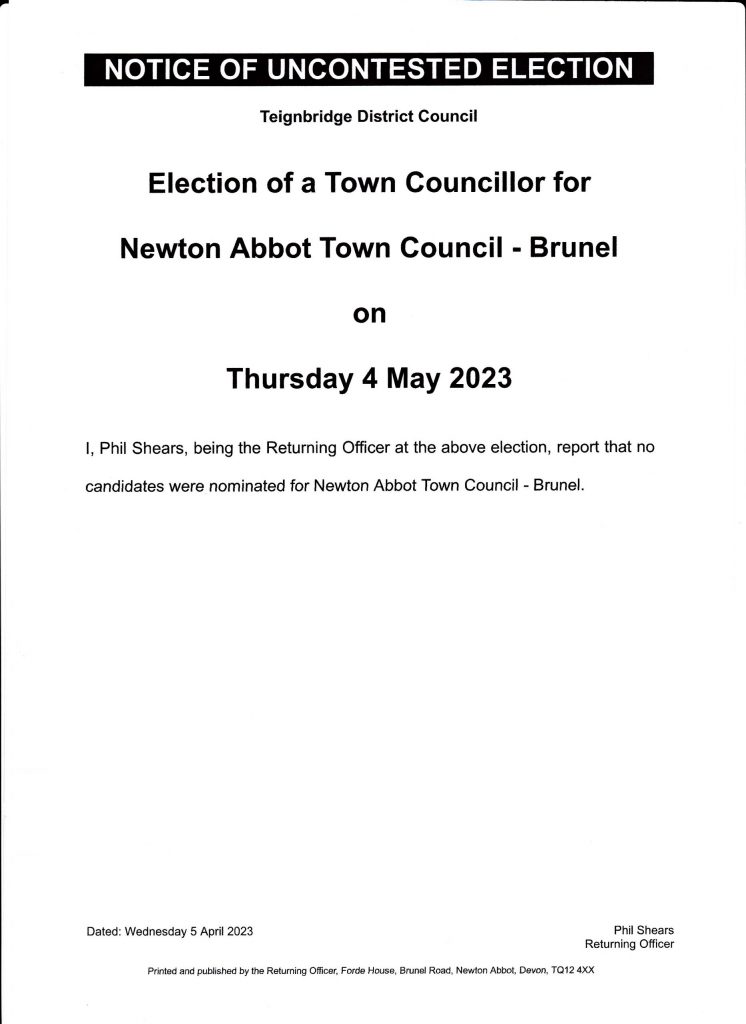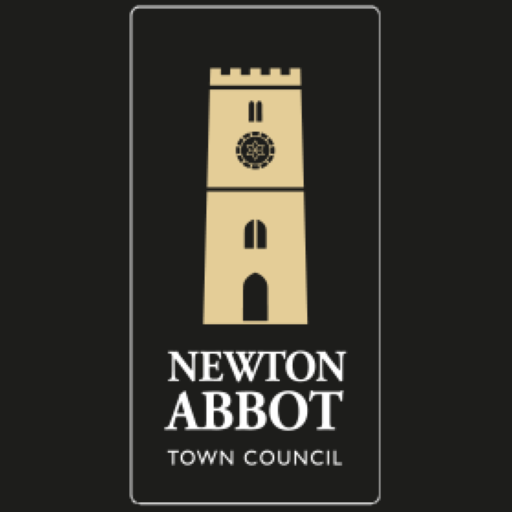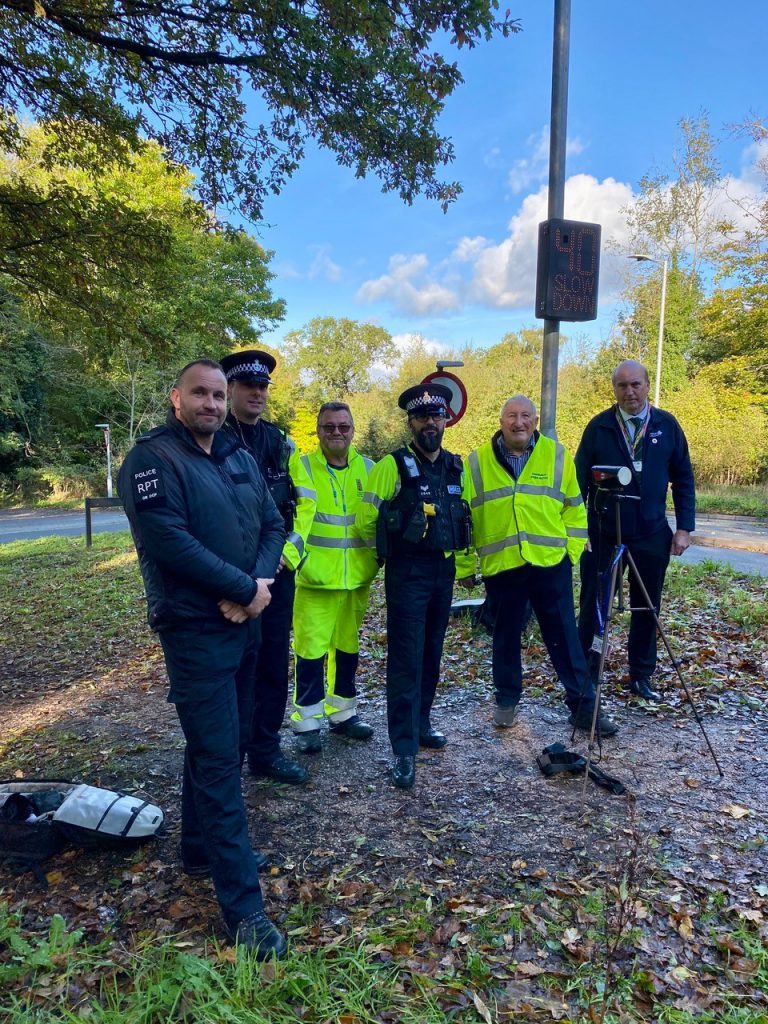


Date: March 10 2023
Newton Abbot Town Council to provide free family fun for the Coronation weekend
LIVE music and free family-friendly activities will be at the heart of Newton Abbot’s celebration of the King’s Coronation weekend.
On Saturday May 6 Courtenay Street will host morning performances by The Hot House Combo, a much-loved four-piece whose repertoire features foot-tapping jazz and swing from the 1930s.
In the afternoon the equally popular Cahoots will take to the stage while walkabout characters will mingle with the crowds and free balloon modelling can be enjoyed.
St Leonard’s clocktower will be royally equipped and open for ‘Coronation selfies’ with visitors also able to sign the book of congratulations for King Charles and the Queen Consort.
On Sunday May 7 the festivities will move to Courtenay Park with a 12 noon – 4pm Party in the Park featuring a band concert, face painting, magical bubbles, balloon modelling, make and create children’s activity stall, Coronation selfie frame and free giveaways.
Families will be encouraged to bring picnics in line with the Coronation Big Lunch theme and there will also be a cocktail bar and ice cream van.
All the attractions, except the refreshments, are being provided free of charge by Newton Abbot Town Council.
Mayor Cllr Carol Bunday said: ‘A Coronation is a rare event in our national life and we want to ensure that the people of our town have the opportunity to share the experience.
‘The beauty of modern technology means we’ll all be able to watch the events at Westminster and Windsor Castle at a time of our choosing yet also come together to enjoy the party atmosphere.
‘And we’re fully aware of the tough economic times which is why we wanted to create a truly affordable weekend with no charge for any of the activities.
‘We’ve also learned from our Jubilee celebrations last year and booked an extra face painter as it proved to be so very popular then and we don’t want any disappointed children this time.
‘We hope, of course, for good weather and to see Newton Abbot coming together to experience this wonderful milestone in our country’s history.
‘God save the King!’
For more information please email natalie.hicks@newtonabbot-tc.co.uk or call 01626 201120.

Please CLICK HERE to see the plan

Have you got photo ID? You’ll need it to vote in May’s local elections
From 4 May, voters in England will need to show photo identification (ID) to vote at polling stations in local elections, Police and Crime Commissioner elections, UK parliamentary by-elections and recall petitions. From October, photo ID will also be mandatory in general elections.
This follows the government’s decision to require voters to show photo ID when voting in person.
A wide range of photoID will be accepted at polling stations including:
Details of all current photo ID options are set out on the electoral commission website.
People who don’t already have an accepted form of photo ID, but are registered to vote, can apply for a free Voter Authority Certificate on line, which will go live on Monday 16 January. The deadline to apply for a Voter Authority Certificate for the May local elections is 5pm on Tuesday 25 April 2023.
Paper application forms will be available from our electoral services team and in addition to information on its website, the electoral commission has set up a helpline to support people – 0800 328 0280.
People who don’t want to show photo ID when voting can apply for a postal vote.

Newton Abbot residents welcome new speed reduction scheme instigated by Town Council
RESIDENTS in Newton Abbot have welcomed a £10,000 traffic-calming initiative instigated by the Town Council.
New mobile speed indicators, known as Vehicle Activated Signs (VAS), have had their first outing on St Marychurch Road.
They were positioned in a 30mph area close to the junction with Aller Brake Road at a spot popular with walkers who cross to visit Ben Stedham’s Woods.
Approaching drivers were made aware of their speed and urged to slow down.
Those who exceeded the limit triggered an automatic recording with the data being saved for the police and highways authorities when considering schemes such as 20mph zones.
‘The VAS signs are another tool in the box to help us make the roads of Newton Abbot safer,’ said Cllr Mike Joyce who, together with Town Clerk Phil Rowe, successfully requested a £10,000 grant from the Police and Crime Commissioner to cover the cost.
‘The Commissioner was supportive of our scheme as it fits perfectly with her Vision Zero ambition to eliminate road deaths in the county.
‘I’m delighted we can now provide the accurate data we need when requesting road safety measures across Newton Abbot.’
David Samson, one of Newton Abbot Town Council’s Facilities Maintenance Officers, helped erect the signs which will be relocated every 28 days to gather information across town.
‘The feedback from residents has been fantastic,’ he said.
‘They’ve thanked us, saying drivers just don’t slow down when people are crossing the road.
‘They’re really pleased something is being done.’
Roads officer MPC Ian Harvey said: ‘In 2021 we had 47 fatal collisions in Devon and Cornwall and 647 serious injuries, so through education, engineering and enforcement our aim is to bring those numbers down drastically.
‘We get a lot of complaints about excessive speeds in residential areas so if we can use devices such as these to bring down speed then the financial cost is a small one compared to that of human lives.’
Cllr Joyce can regularly be seen around town, helping to implement other aspects of the Community Speed Watch initiative which reports speeding drivers to the police for investigation.
Pictured left – right at the VAS launch are MPC Ian Harvey, Neighbourhood Officer PC Charlie Haggerty, FMO David Samson, Neighbourhood Team Leader Sgt Jason Morrison, Cllr Mike Joyce and Cllr Stuart Hughes of Devon County Council. A mobile speed ‘gun’ is also in position.
For more information please email mike.joyce@newton abbot-tc.gov.uk or call 01626 201120.